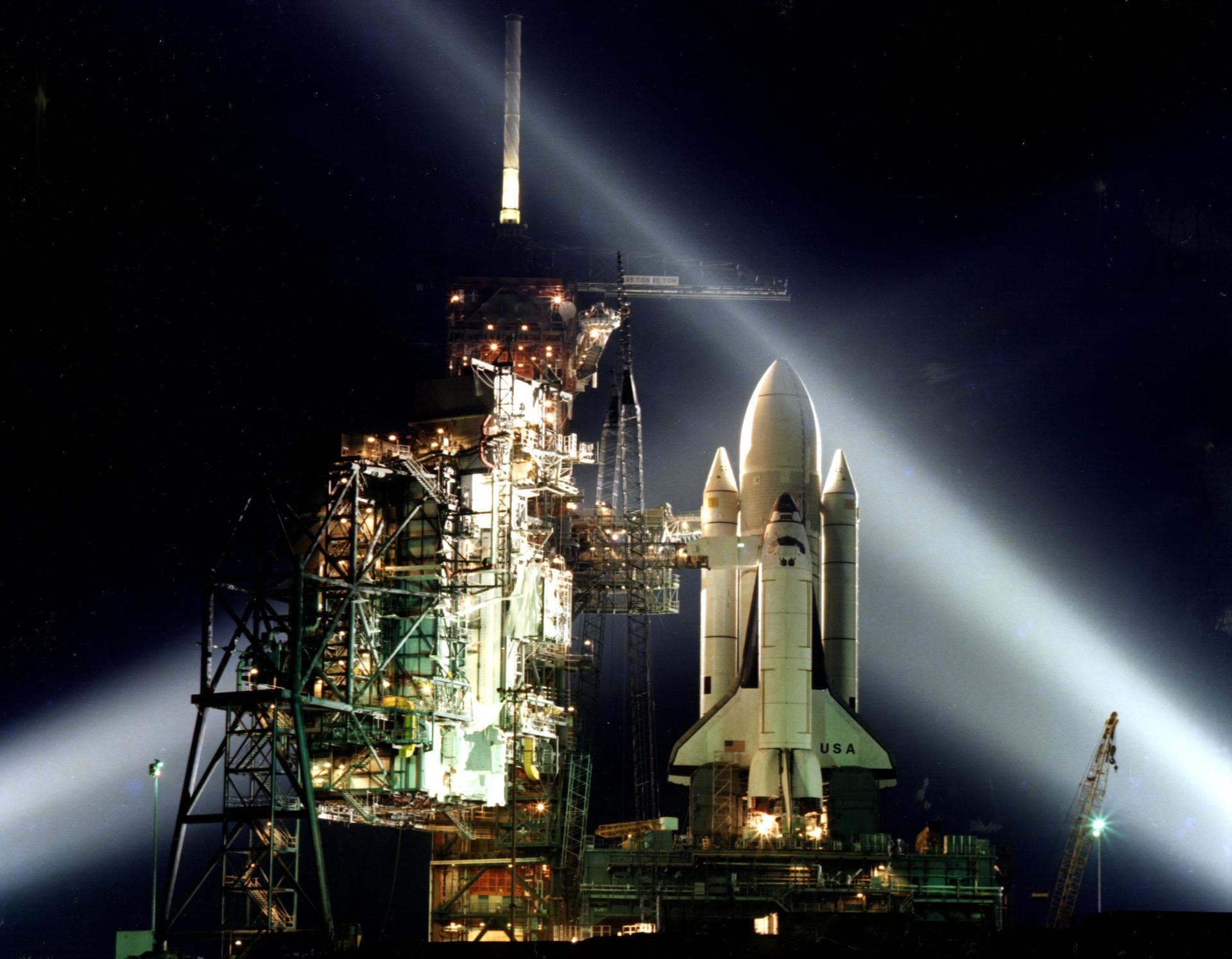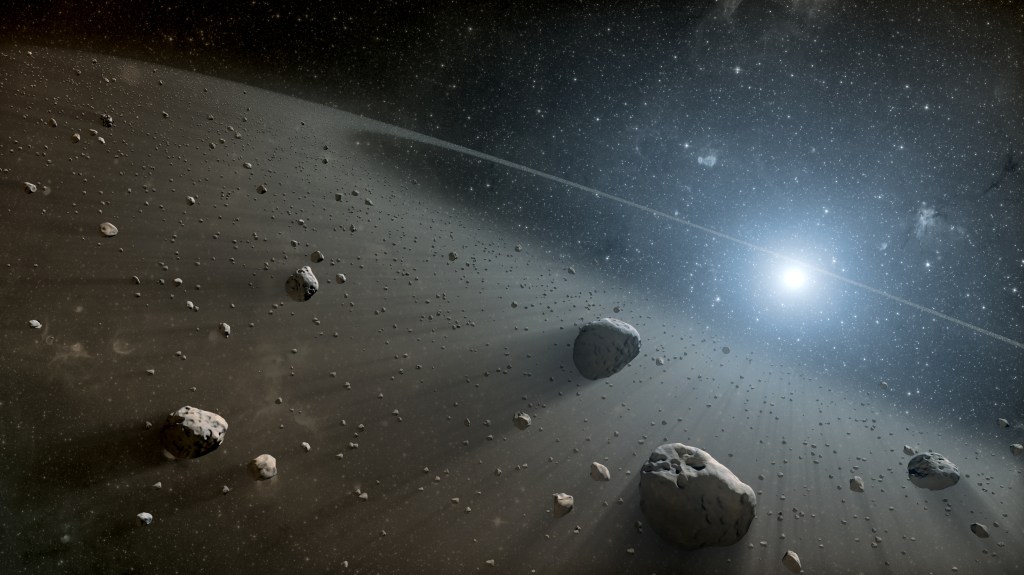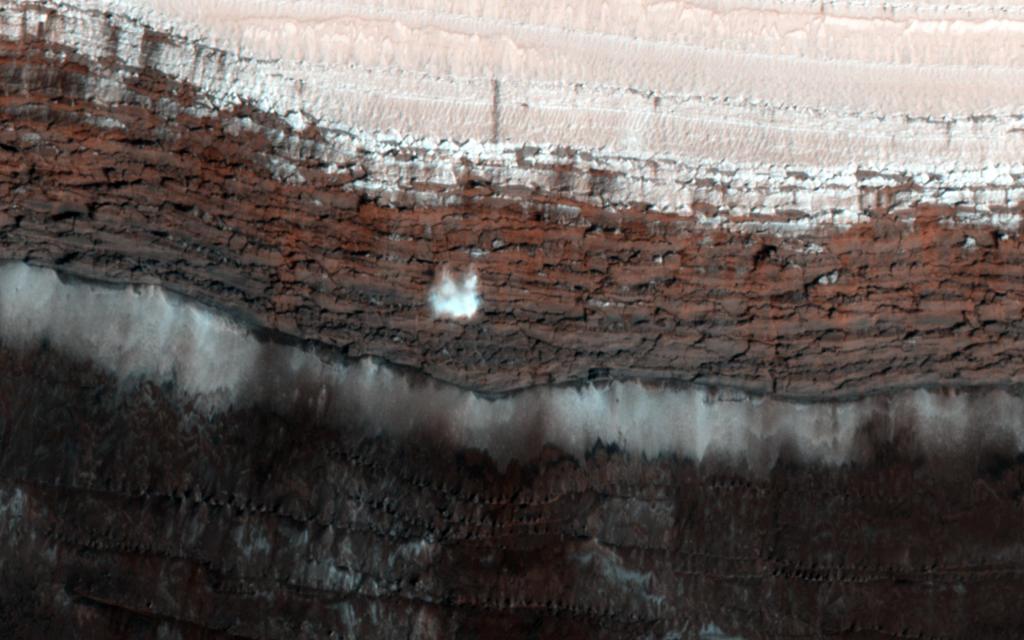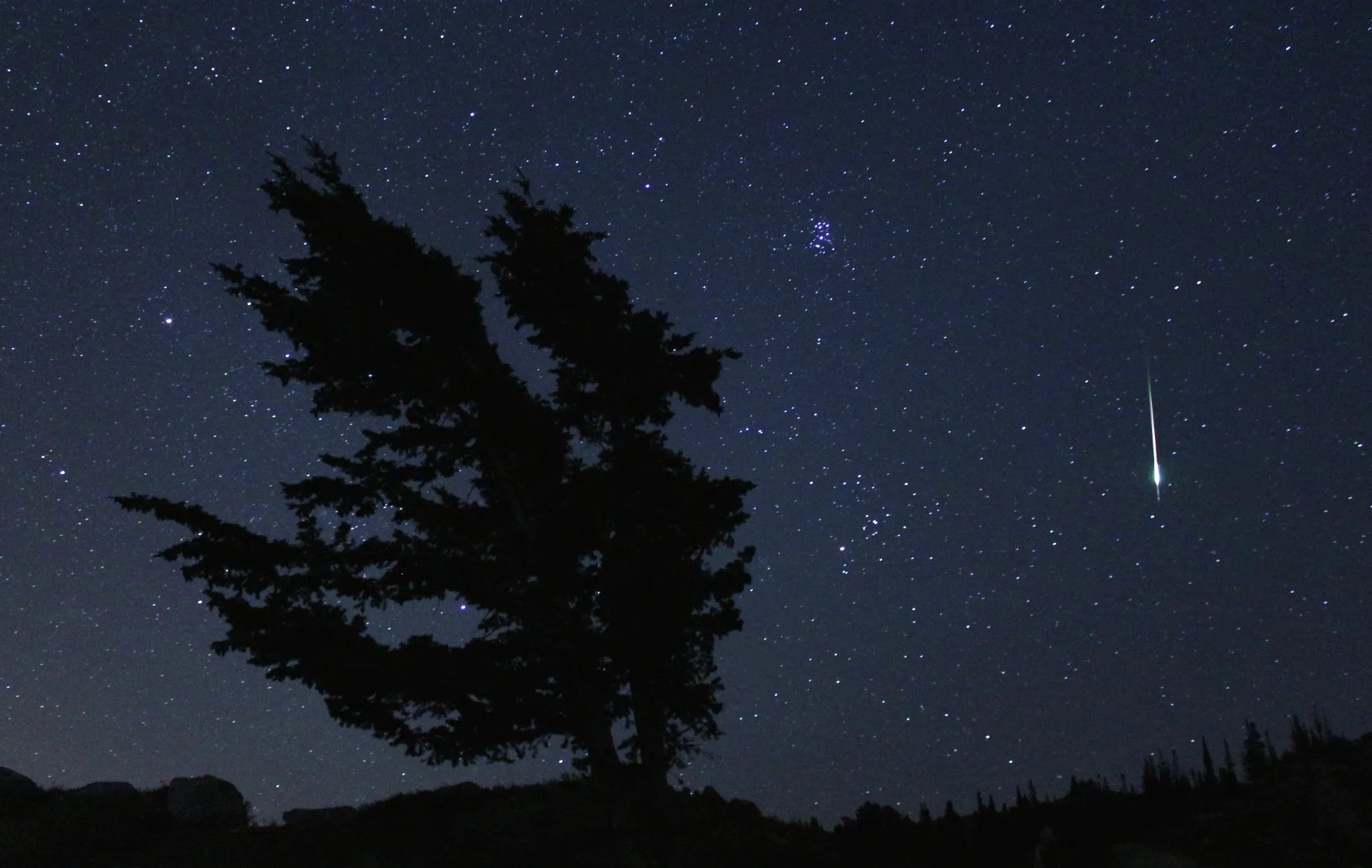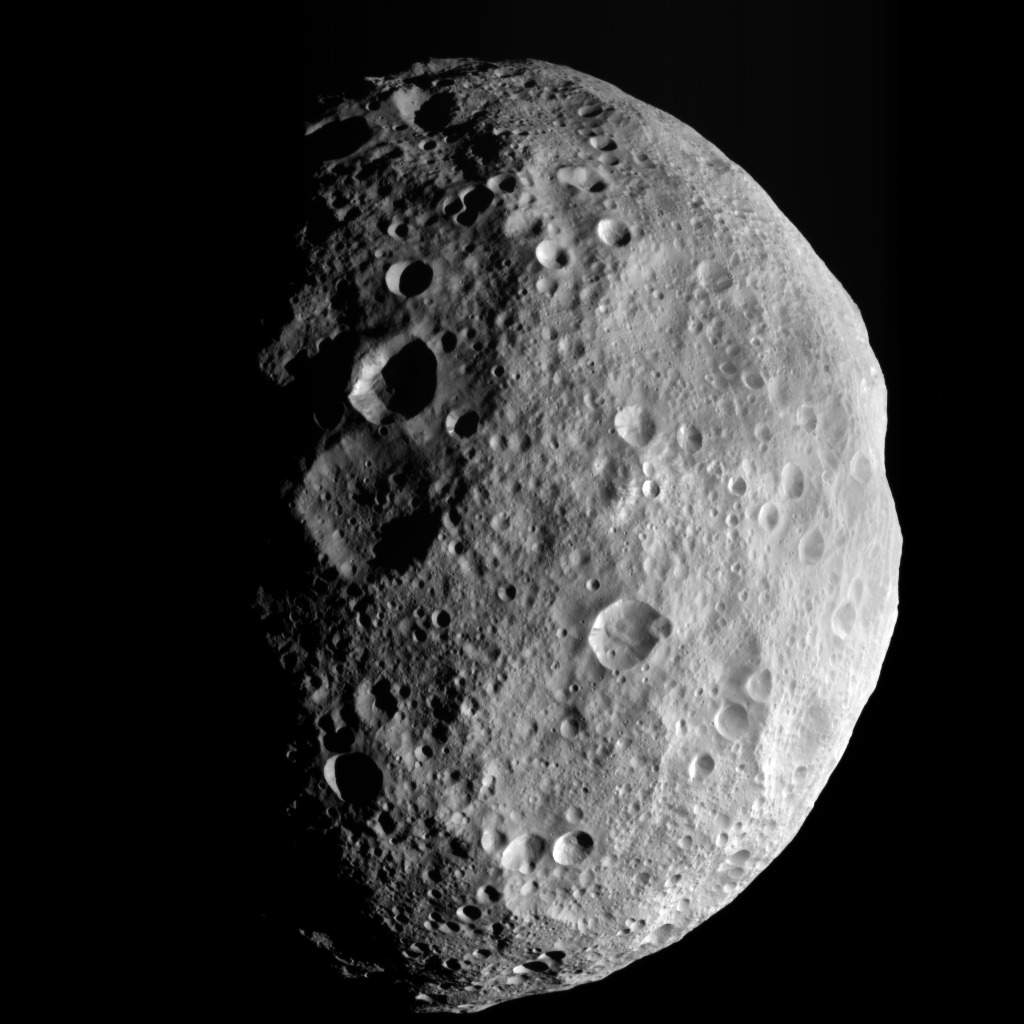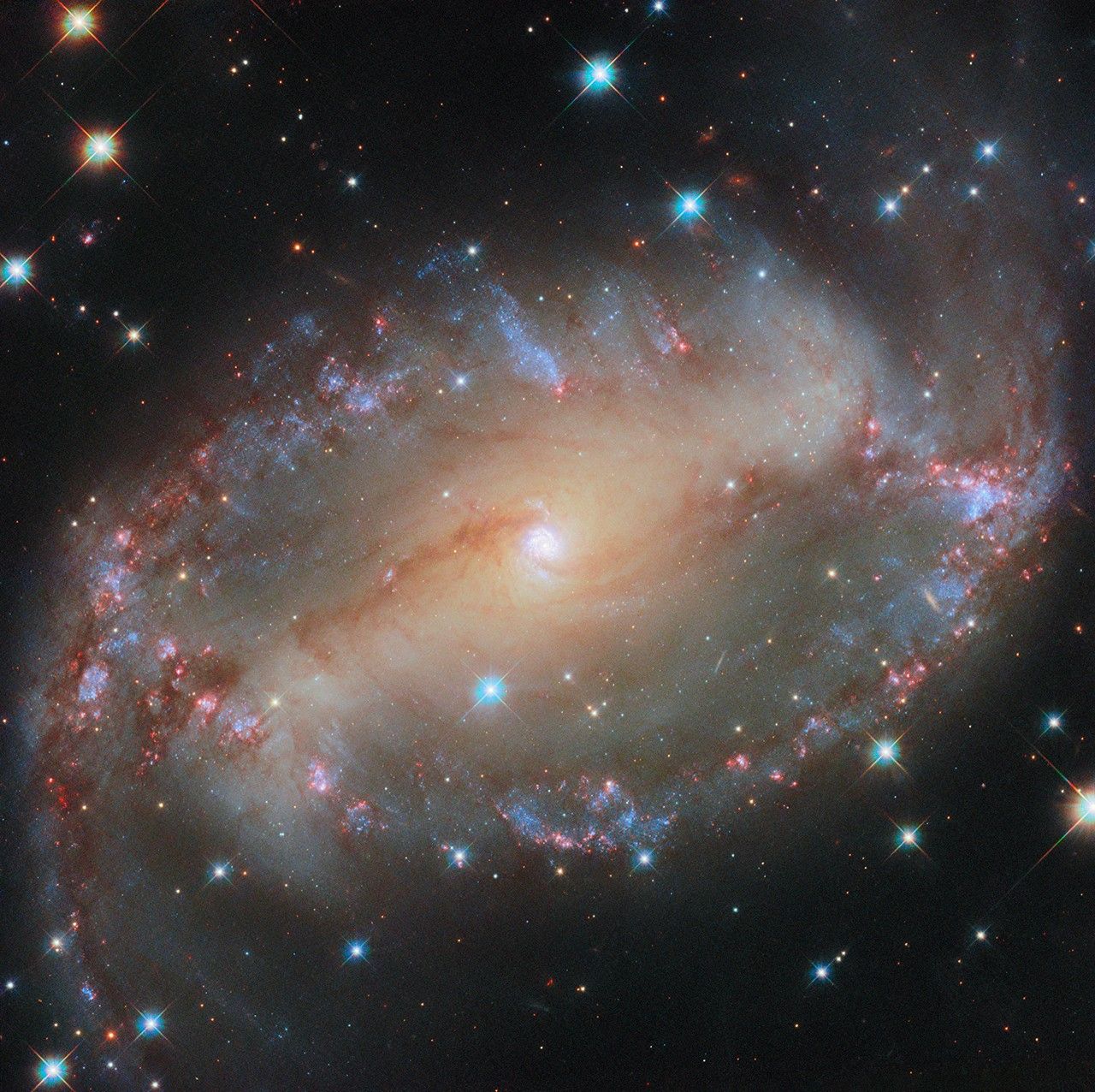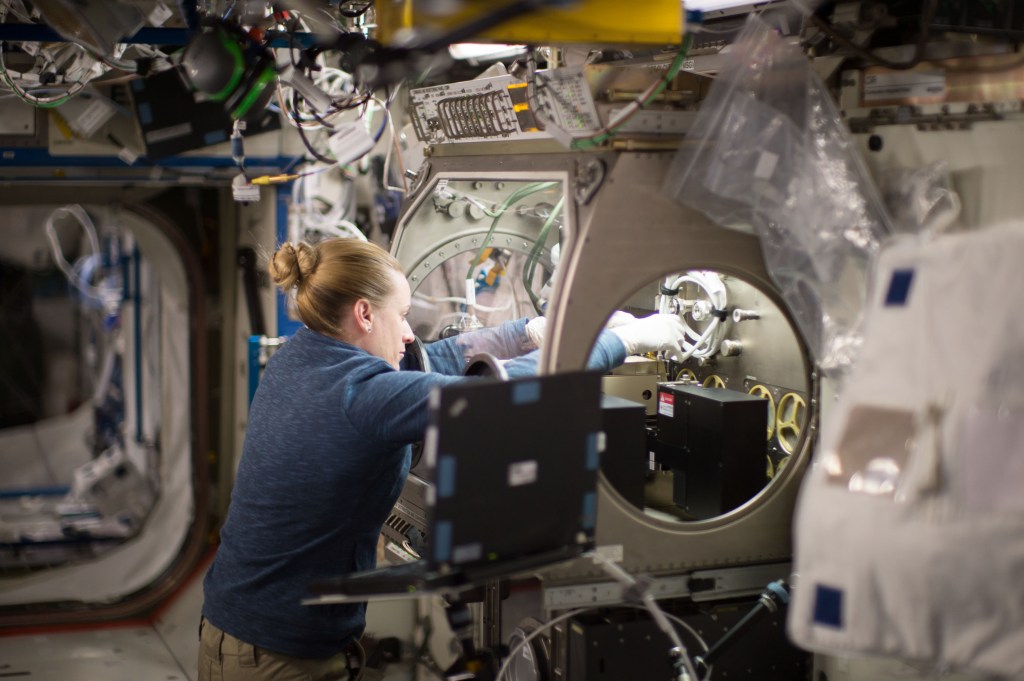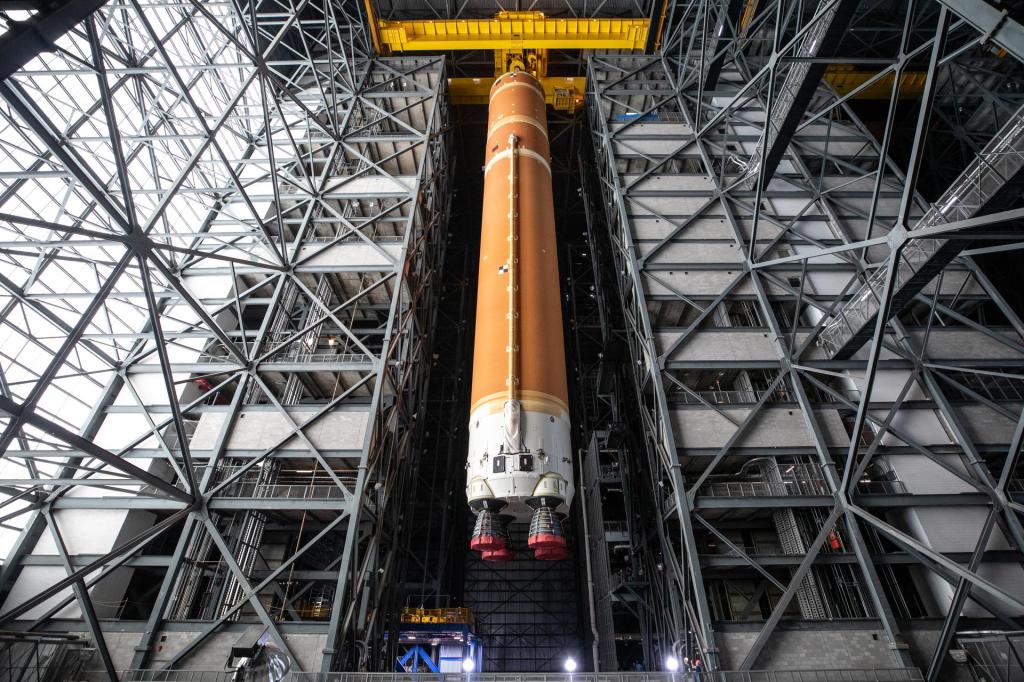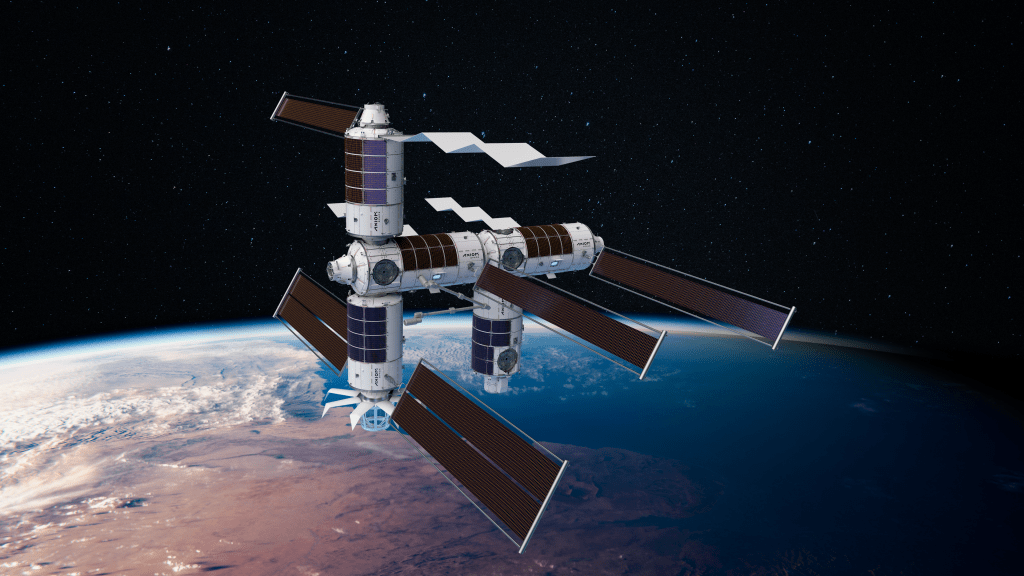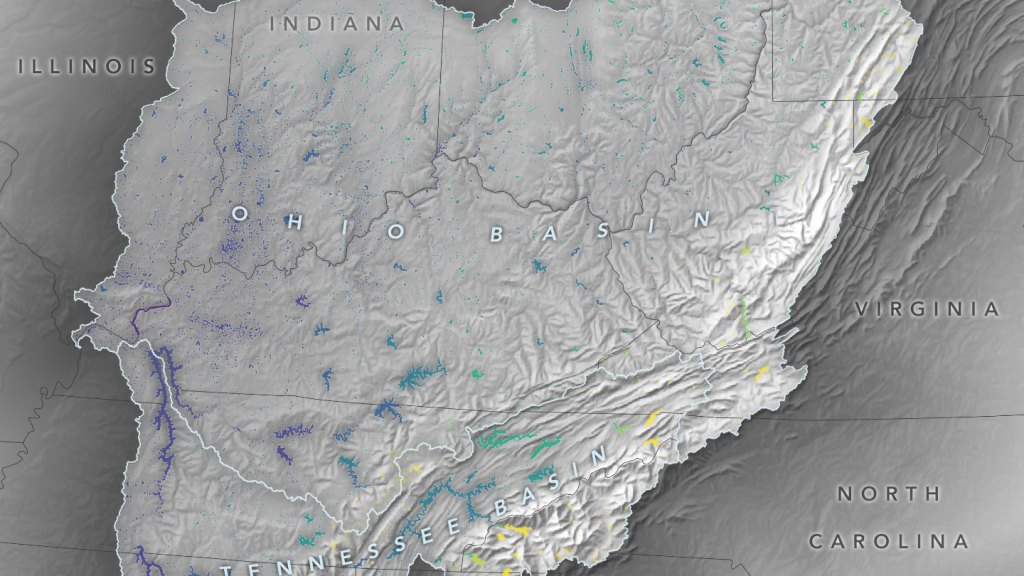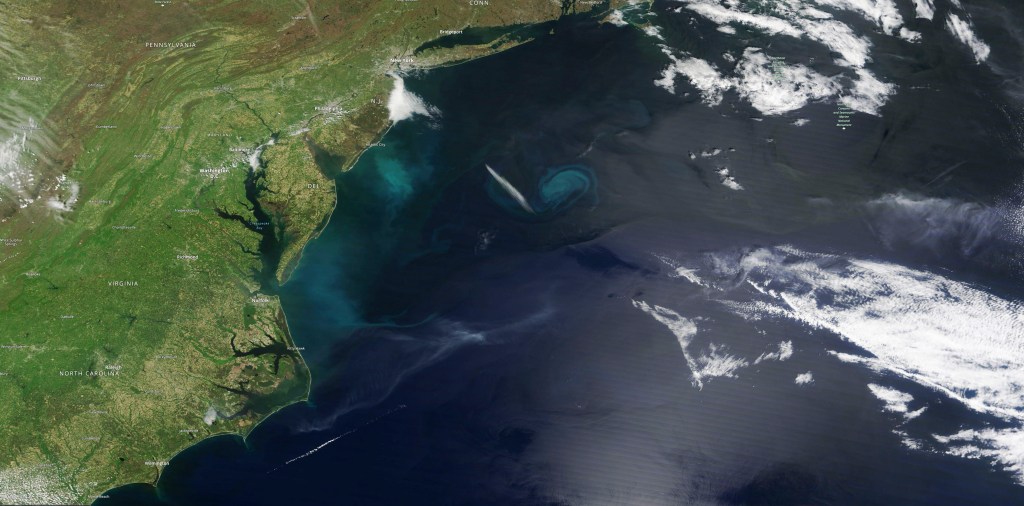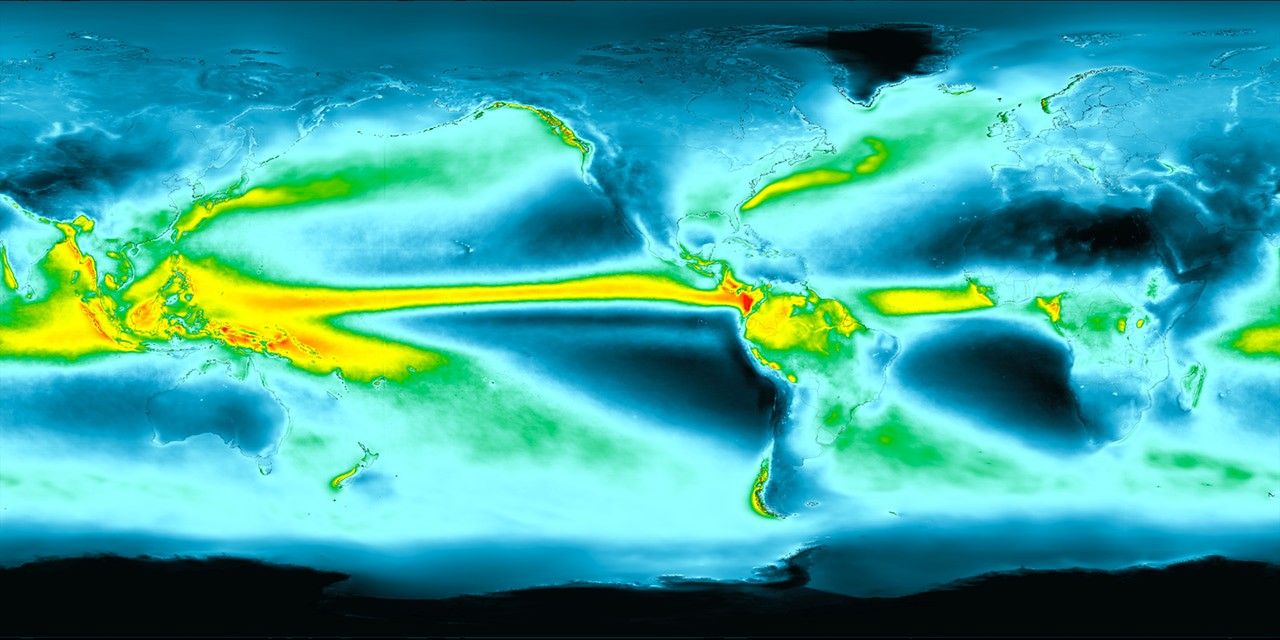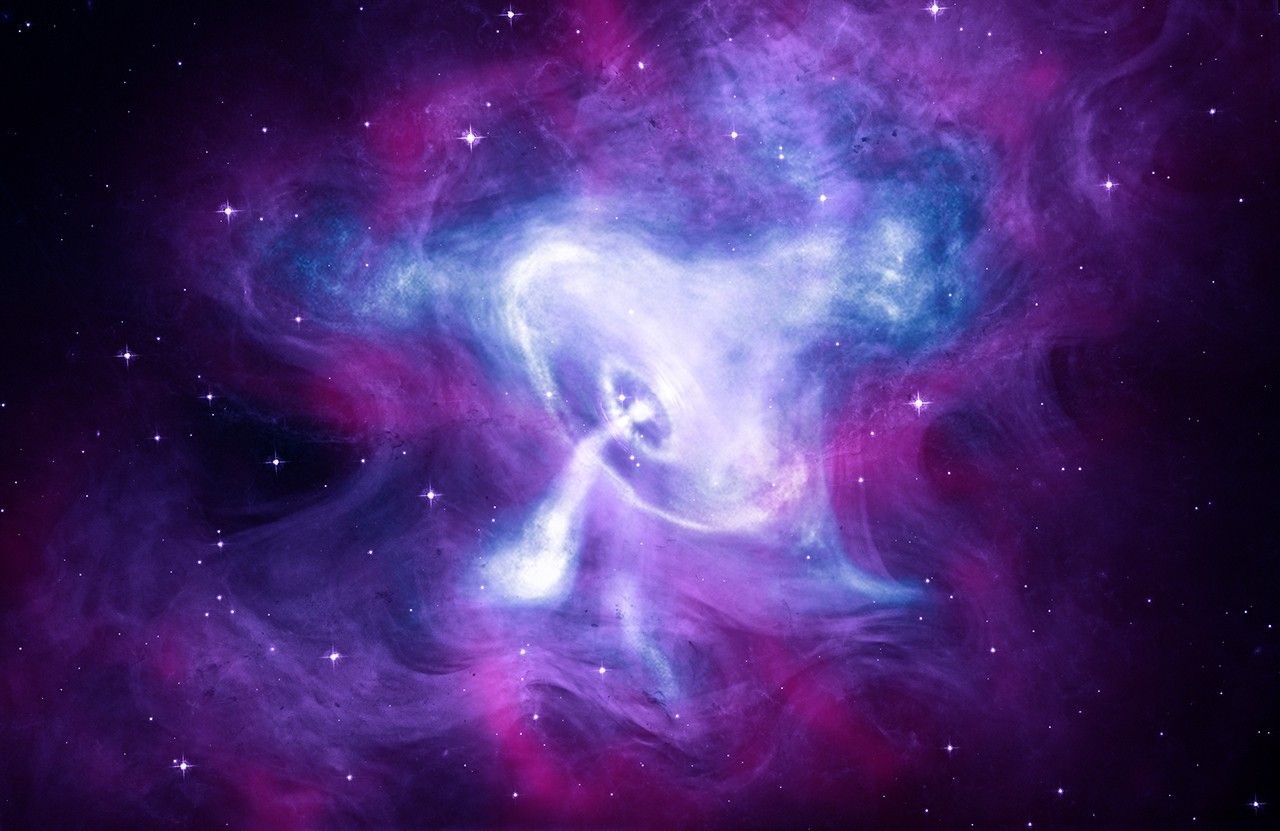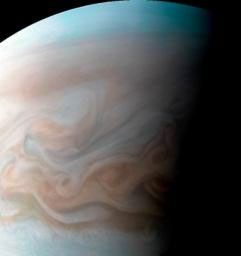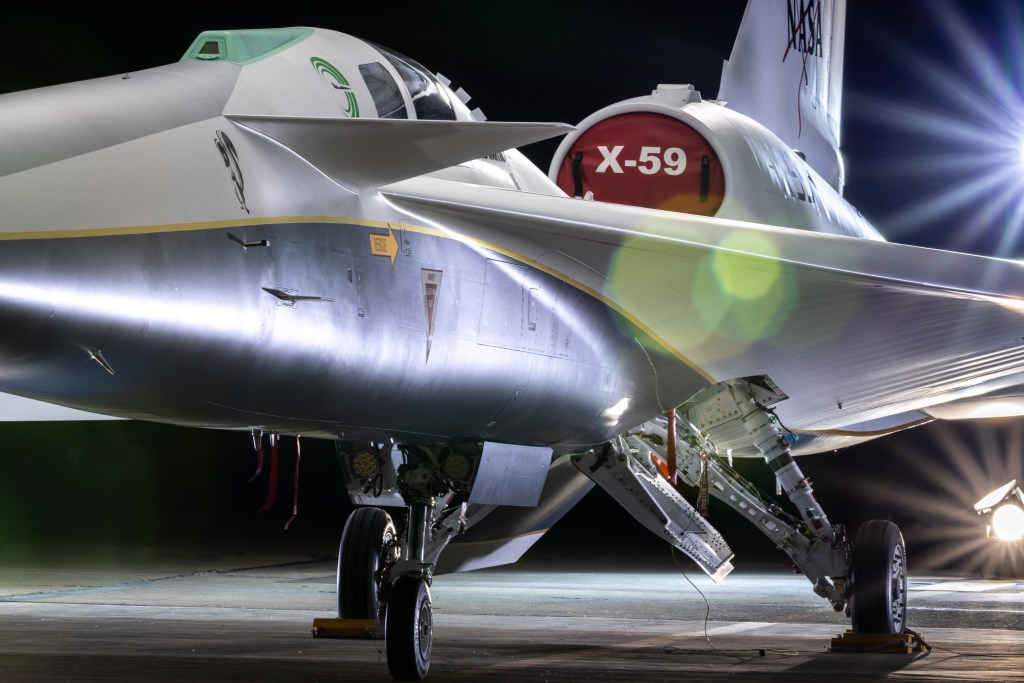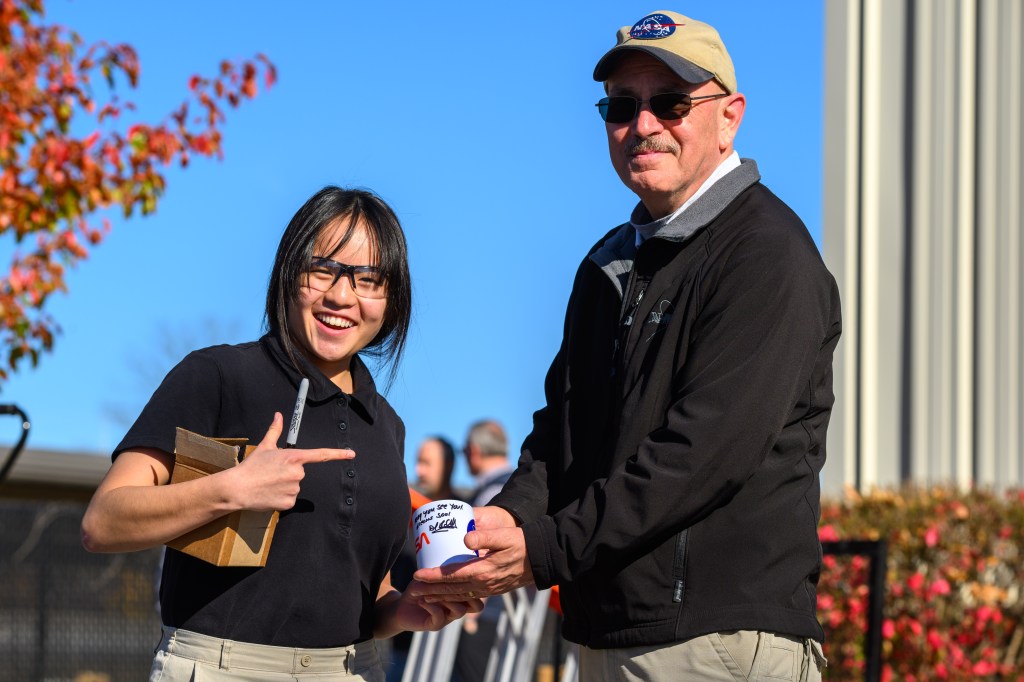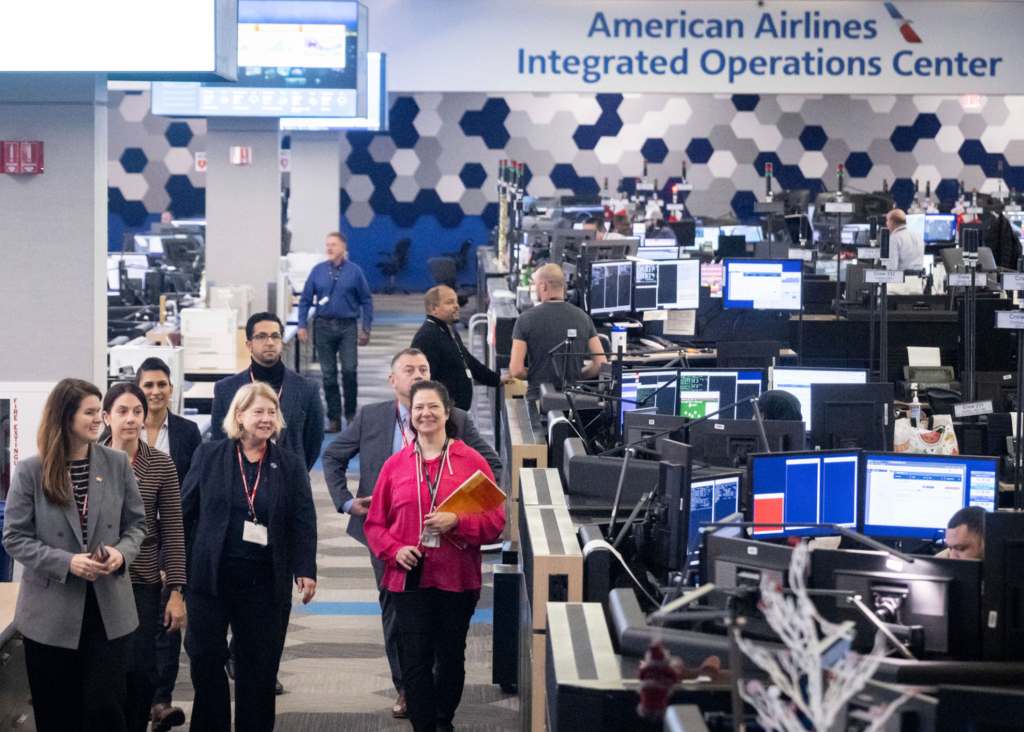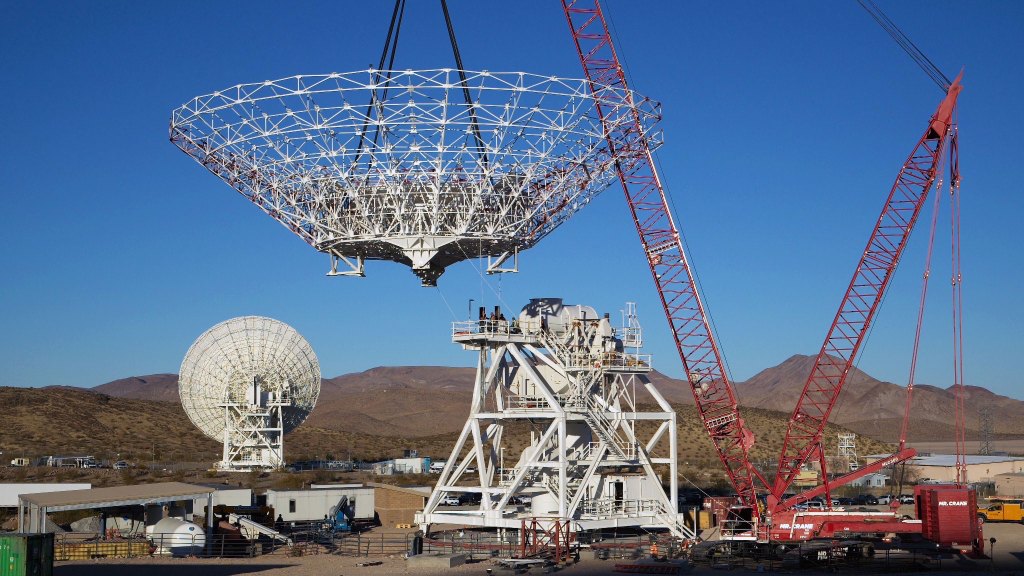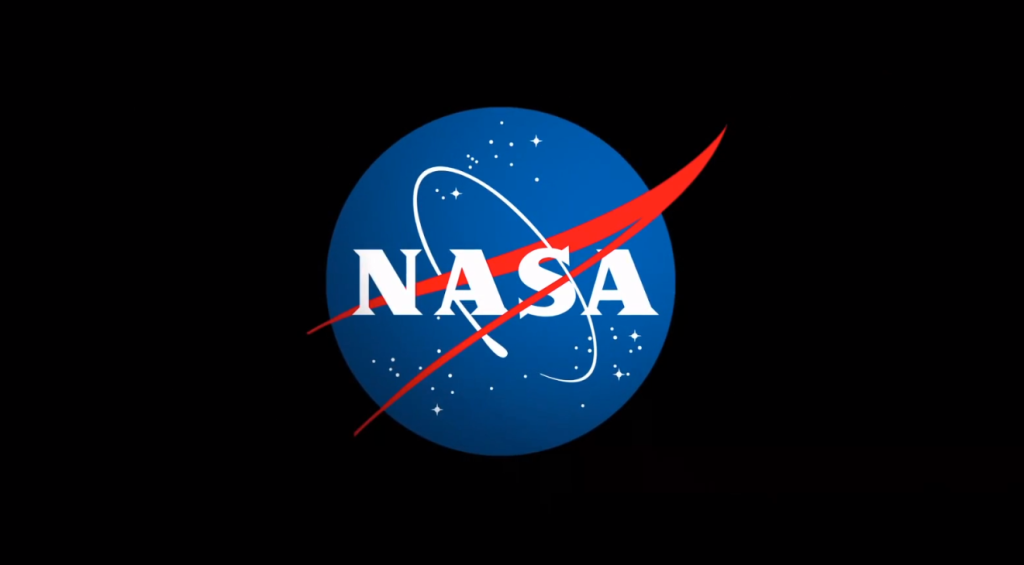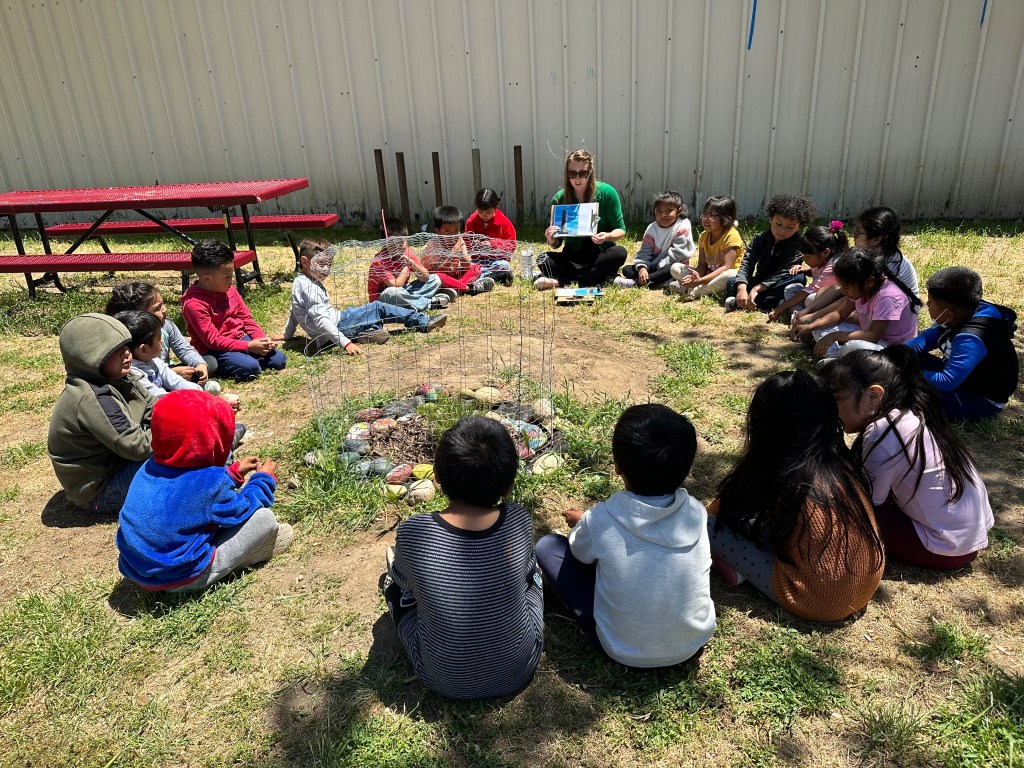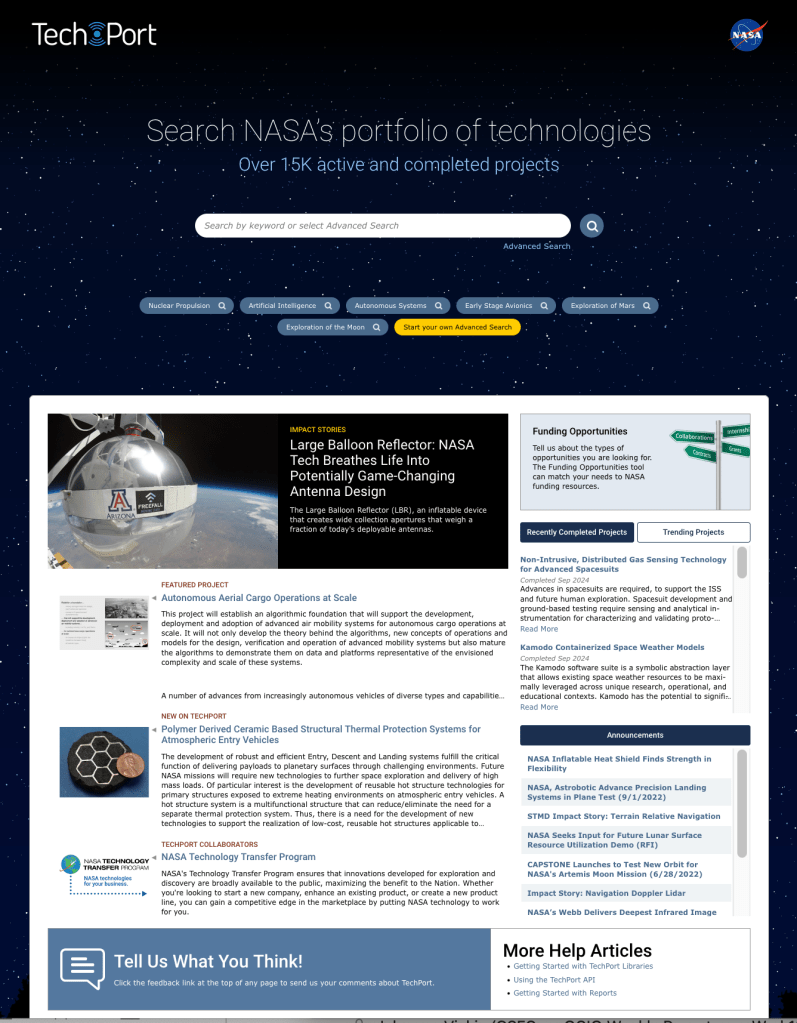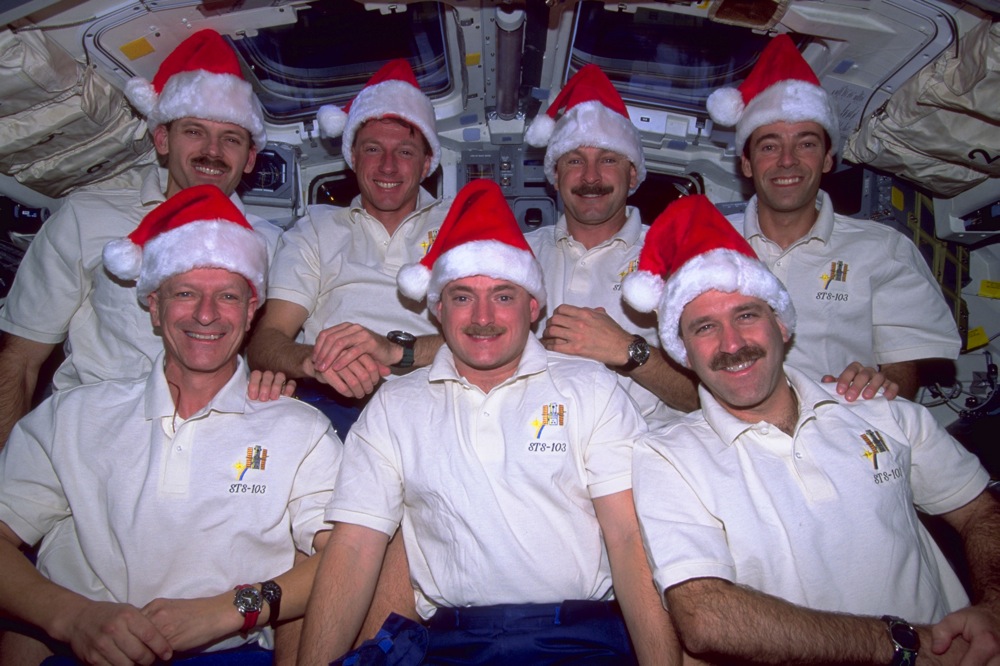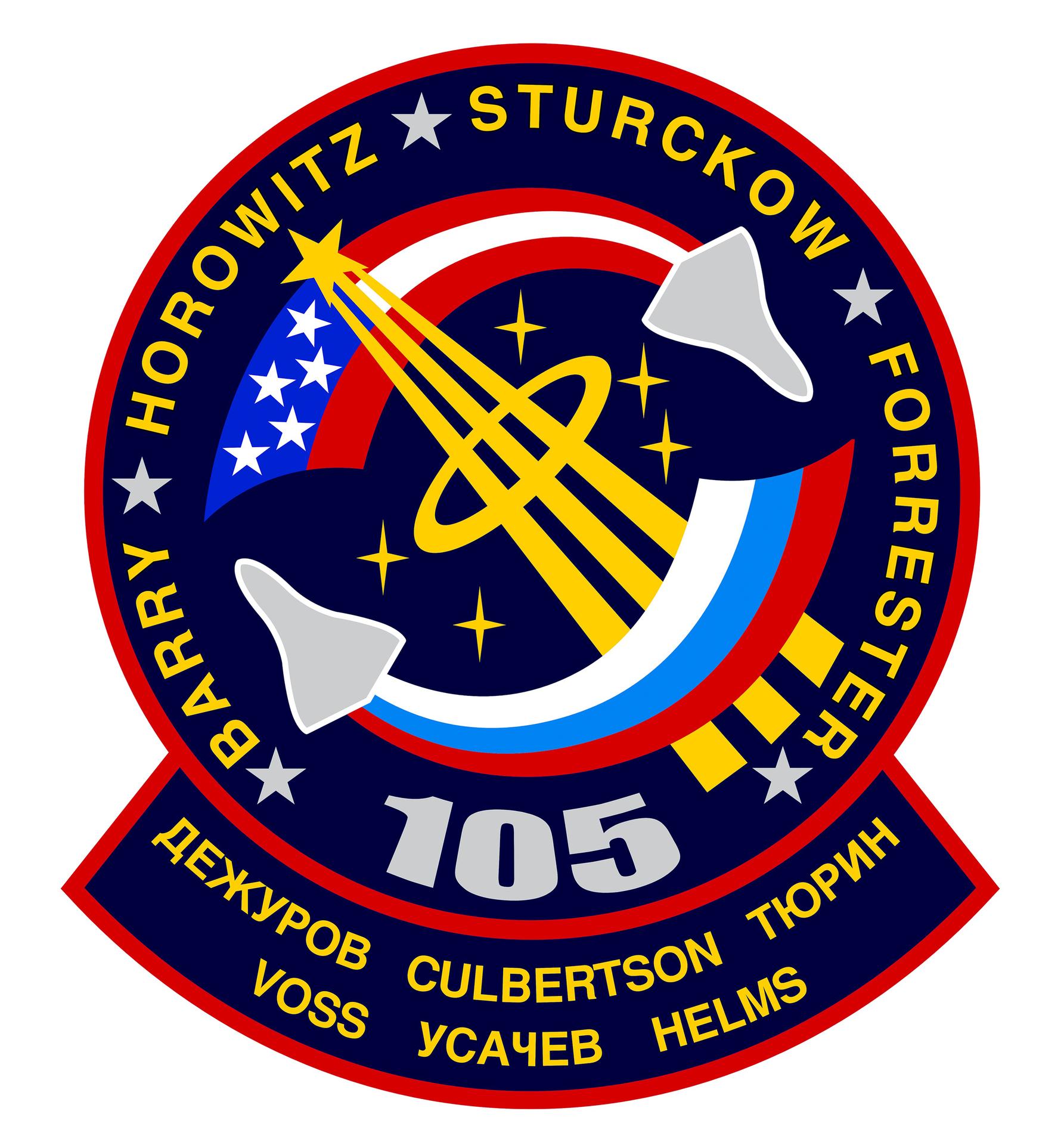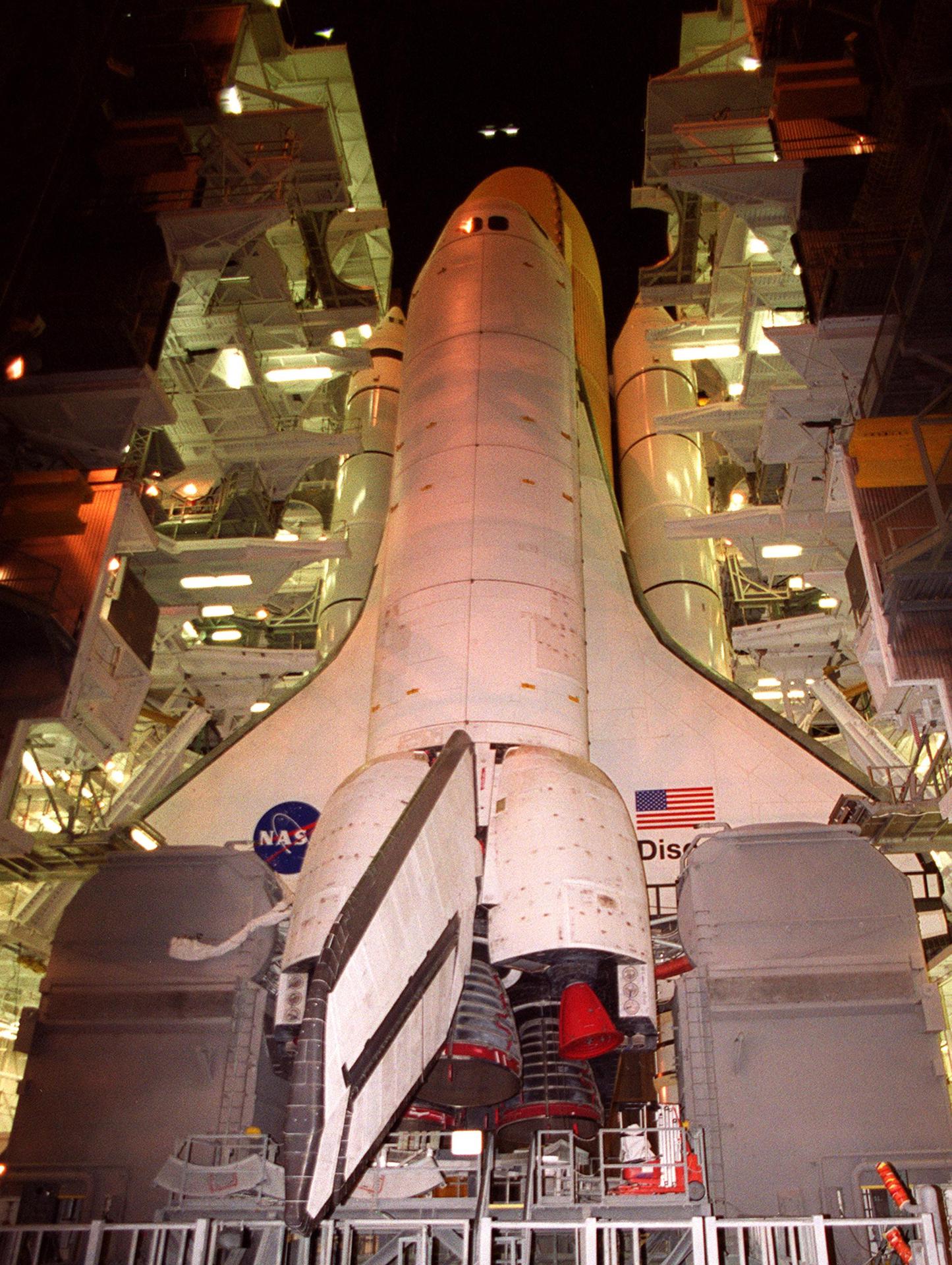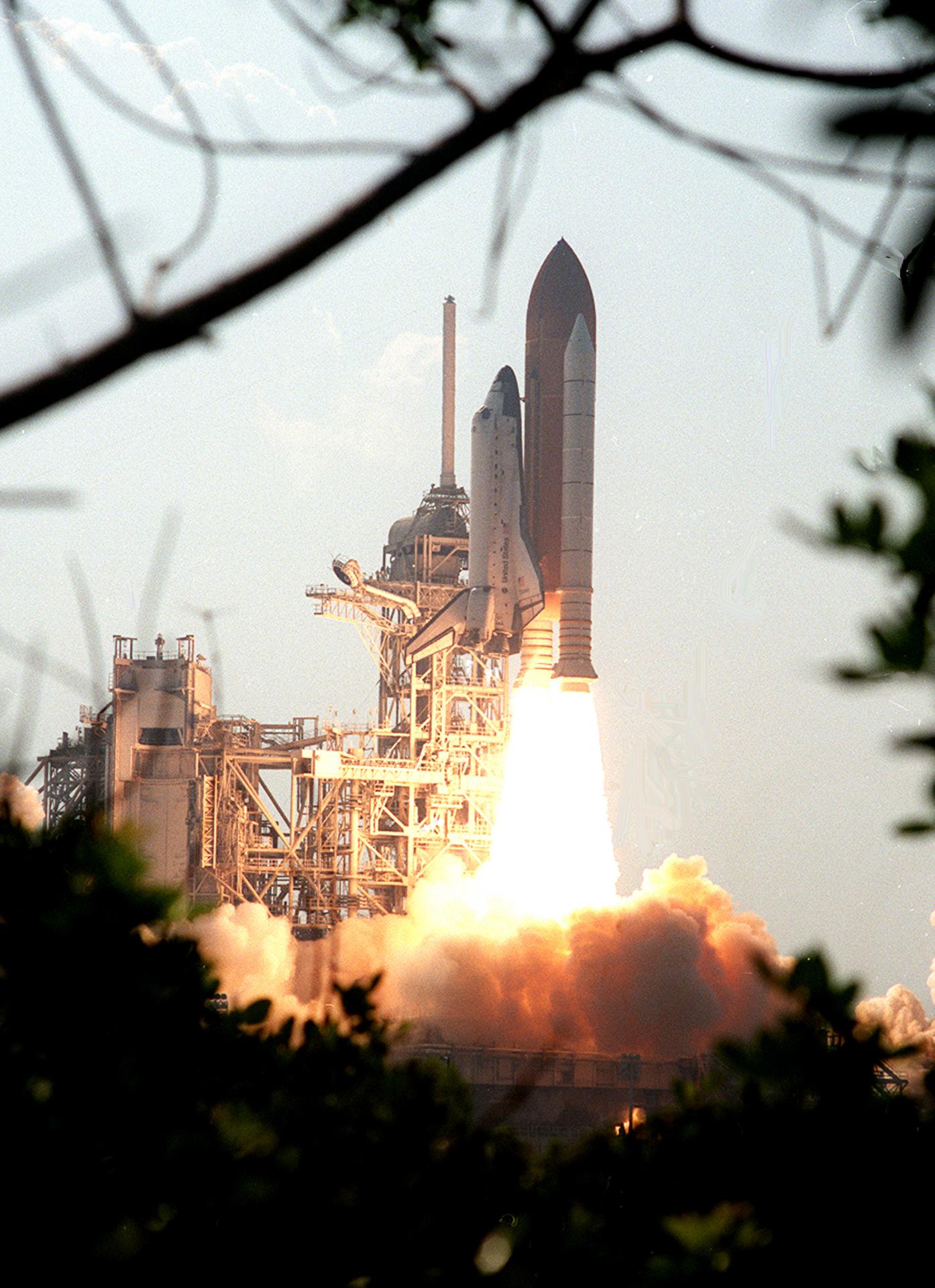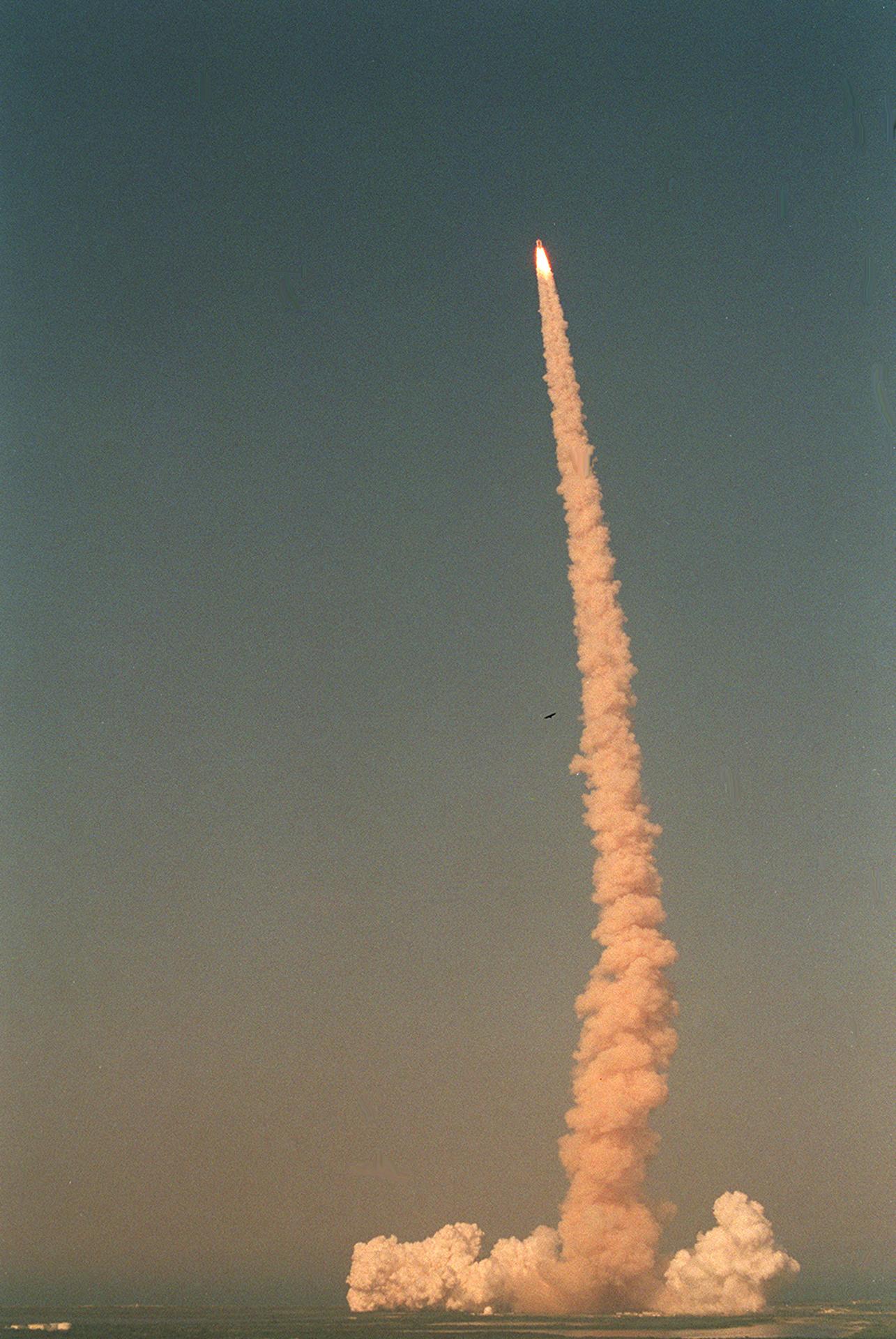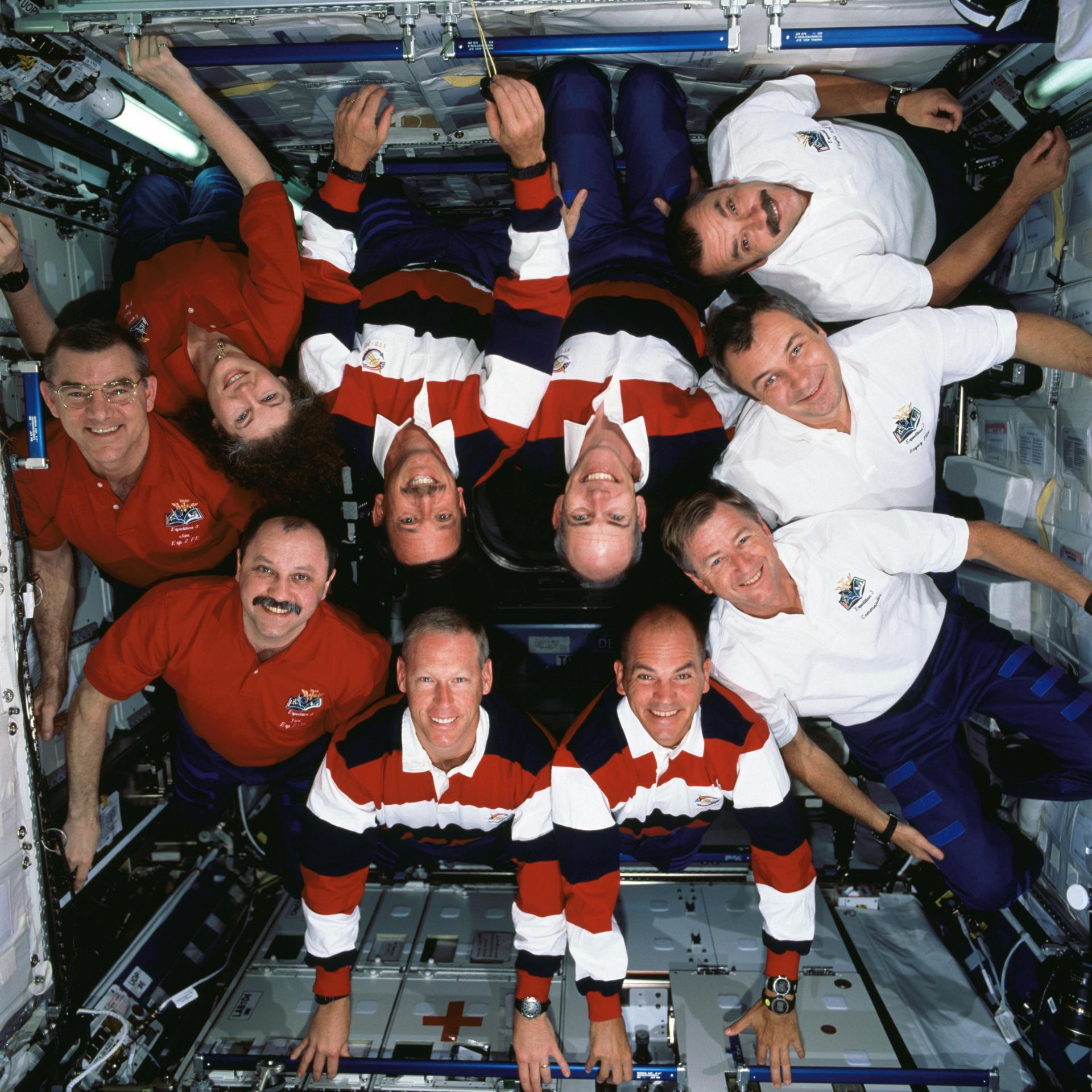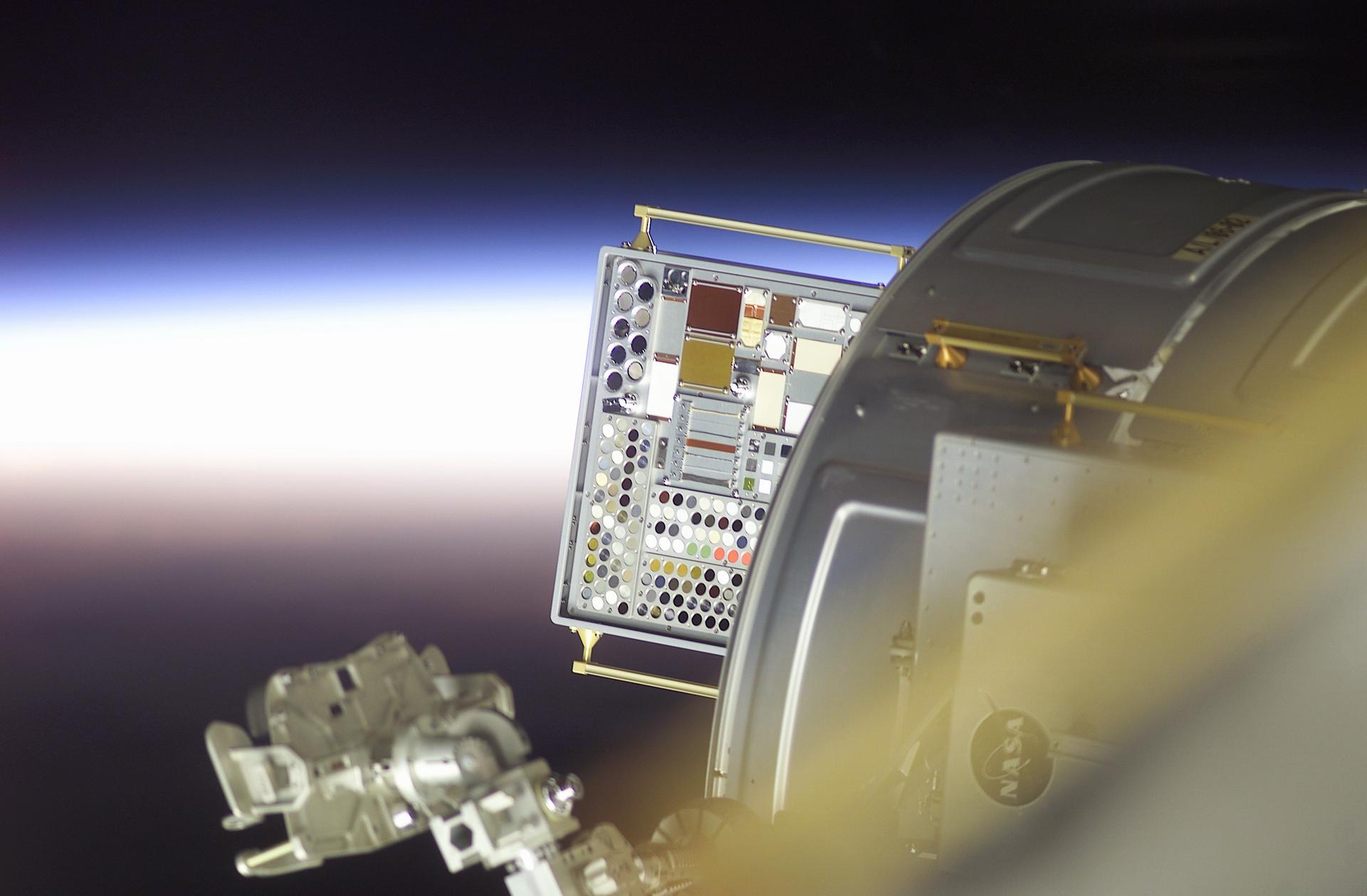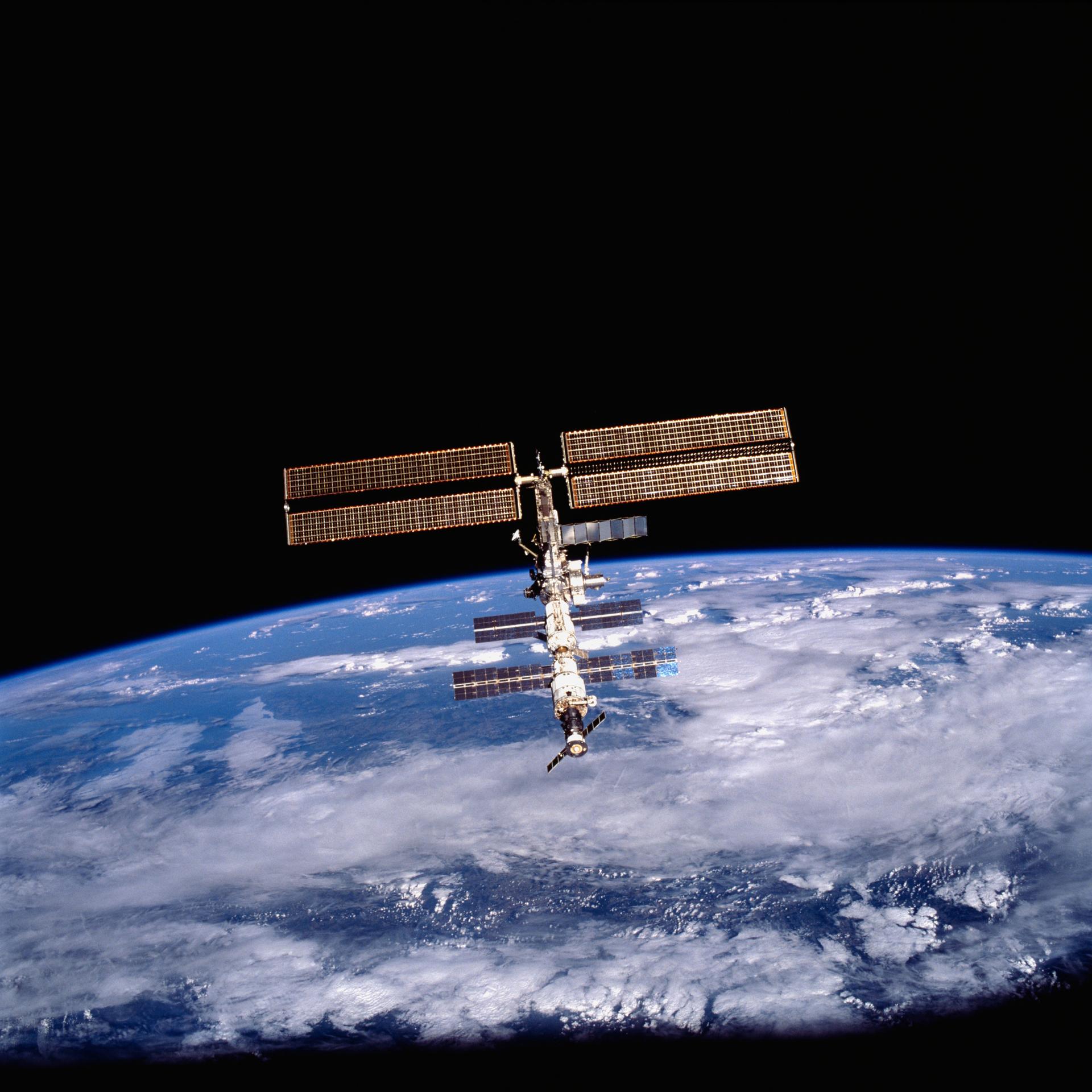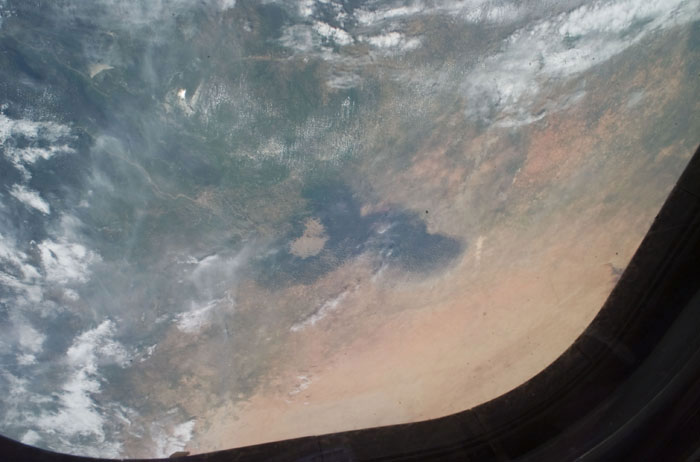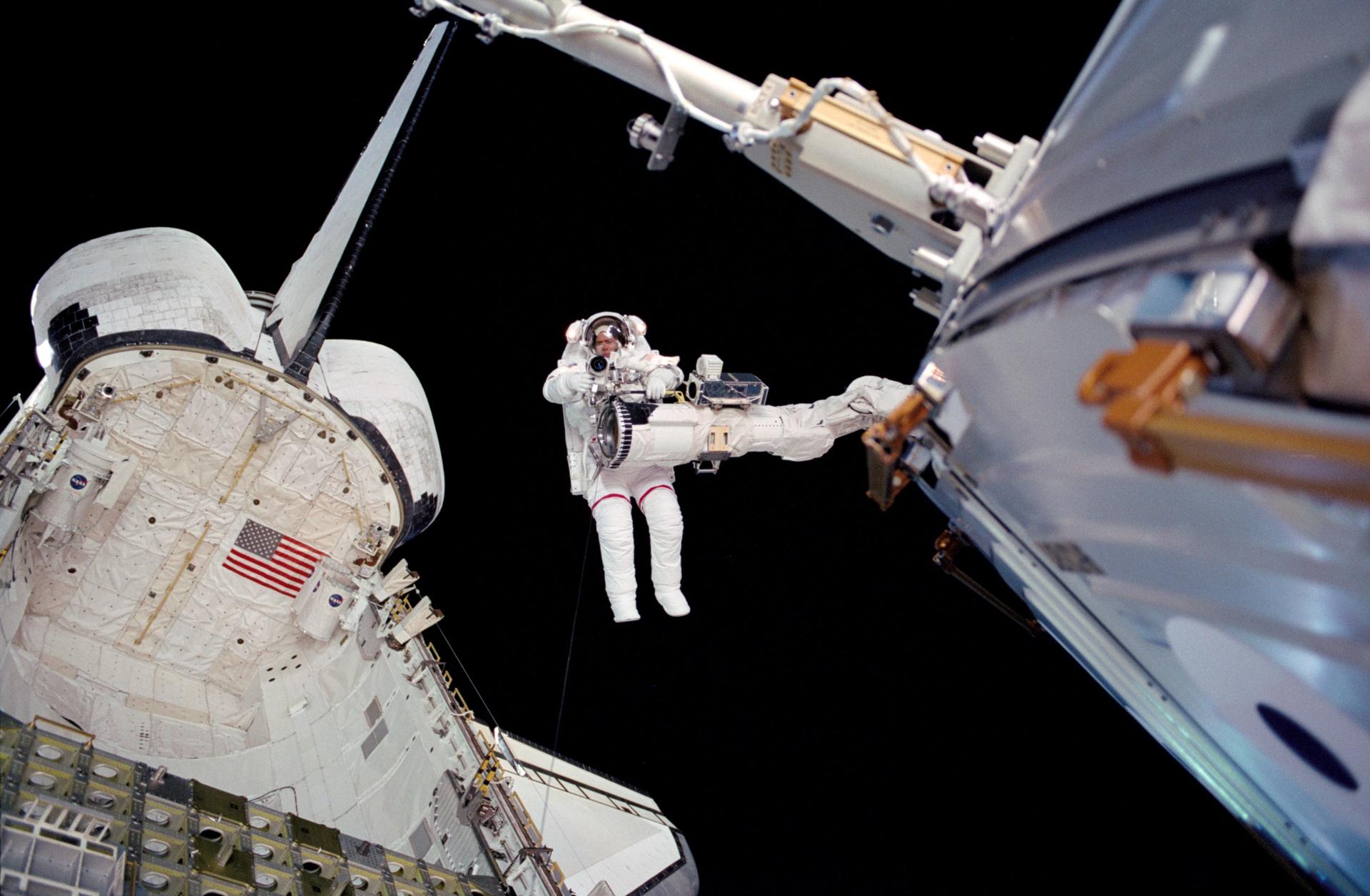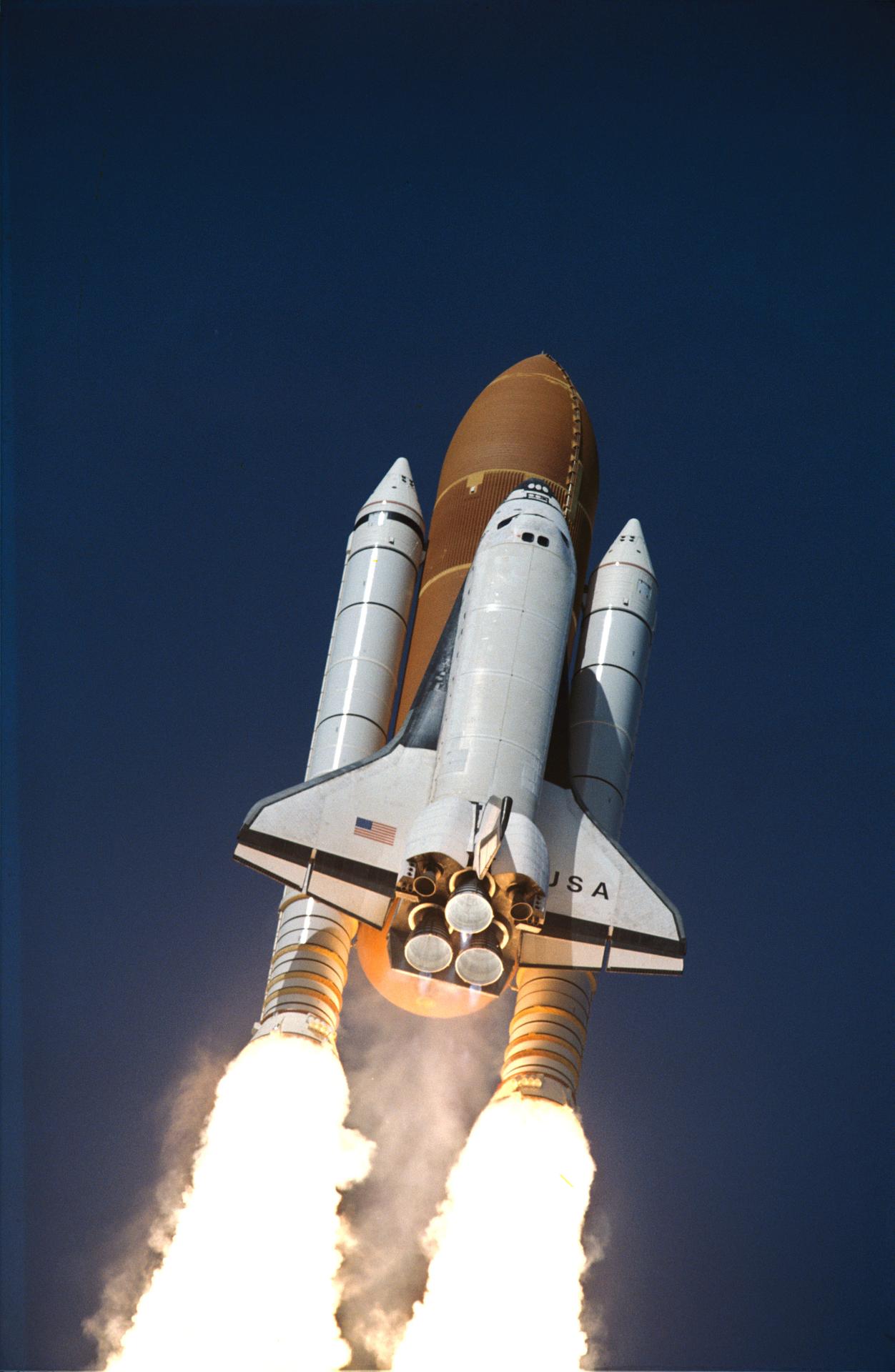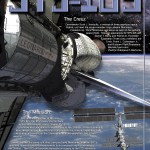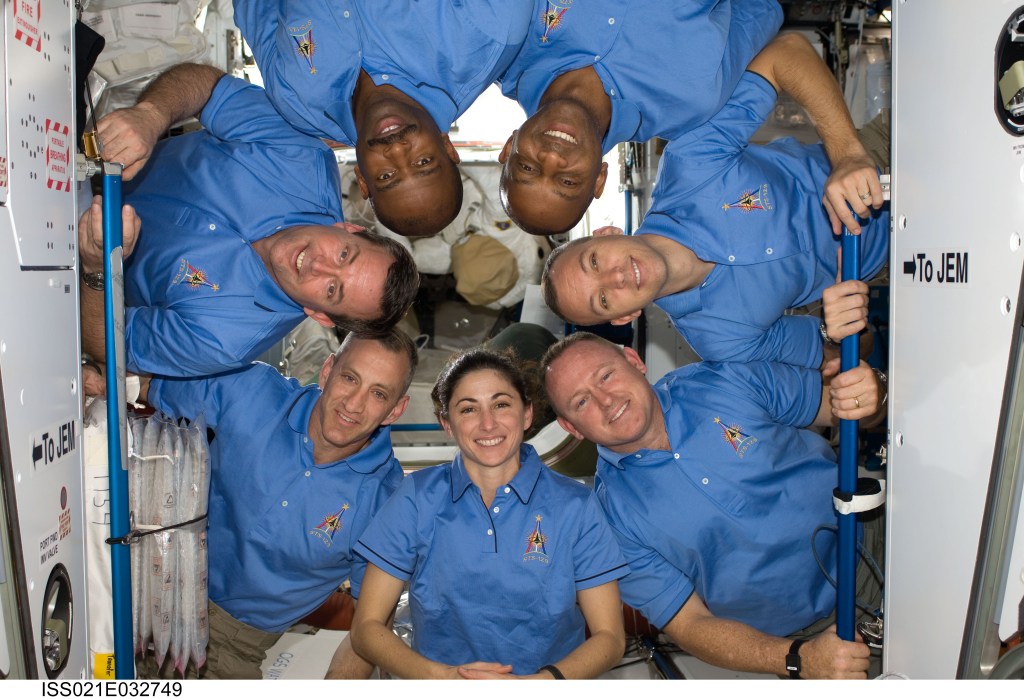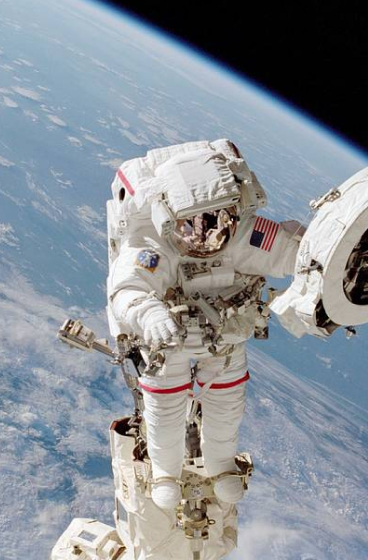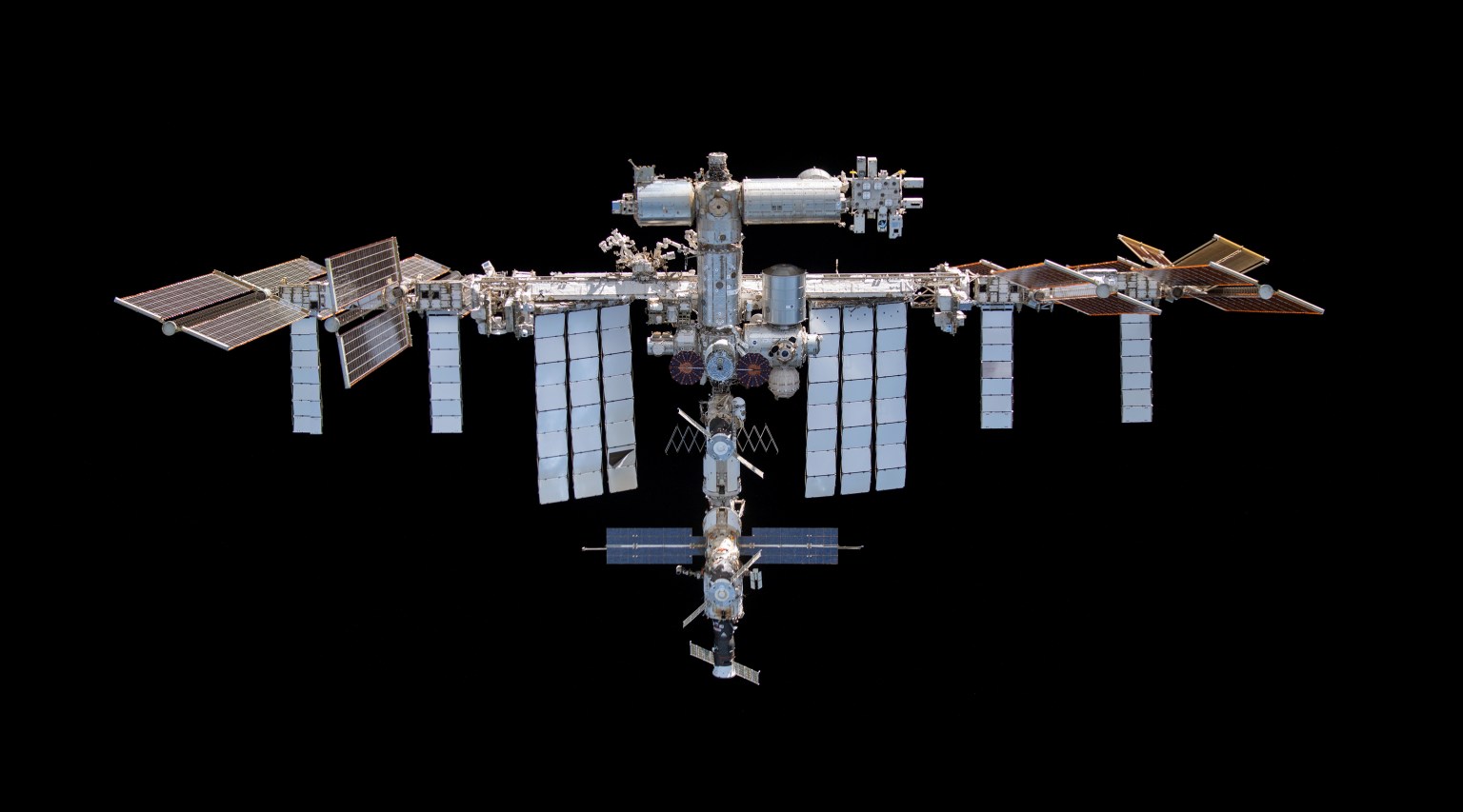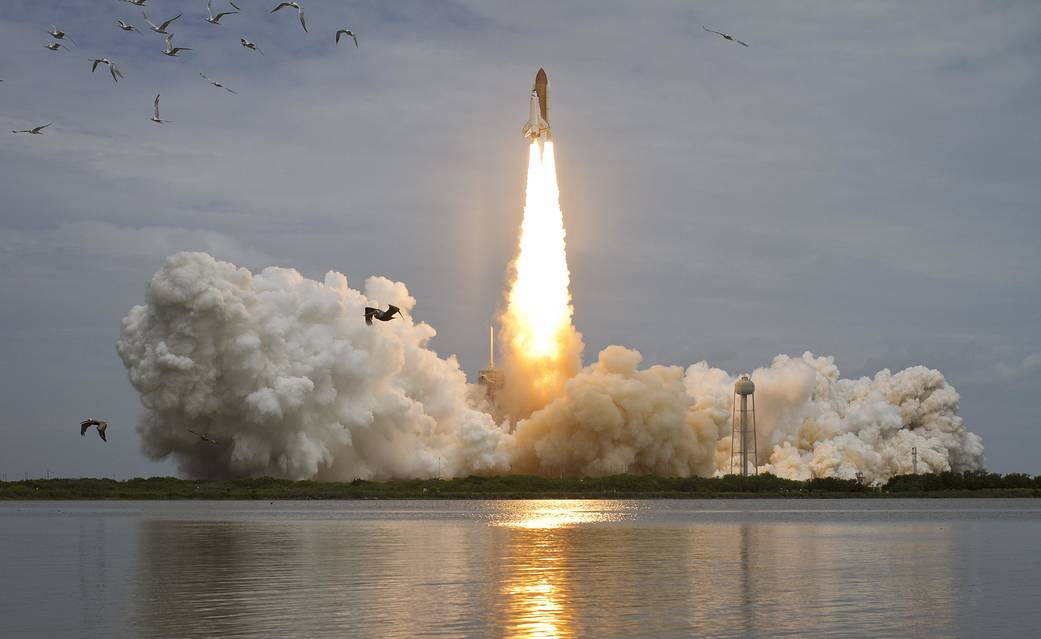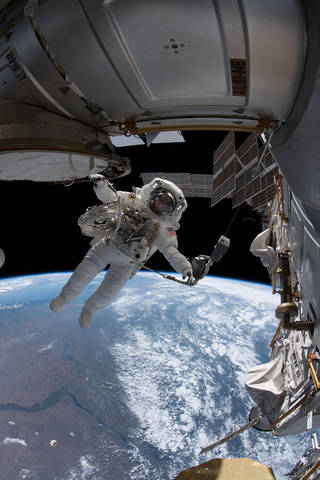
STS-105
The STS-105 mission was the 11th ISS assembly flight and launched on August 10, 2001 aboard the Space Shuttle Orbiter Discovery.
Orbiter
mission duration
Launch
Landing
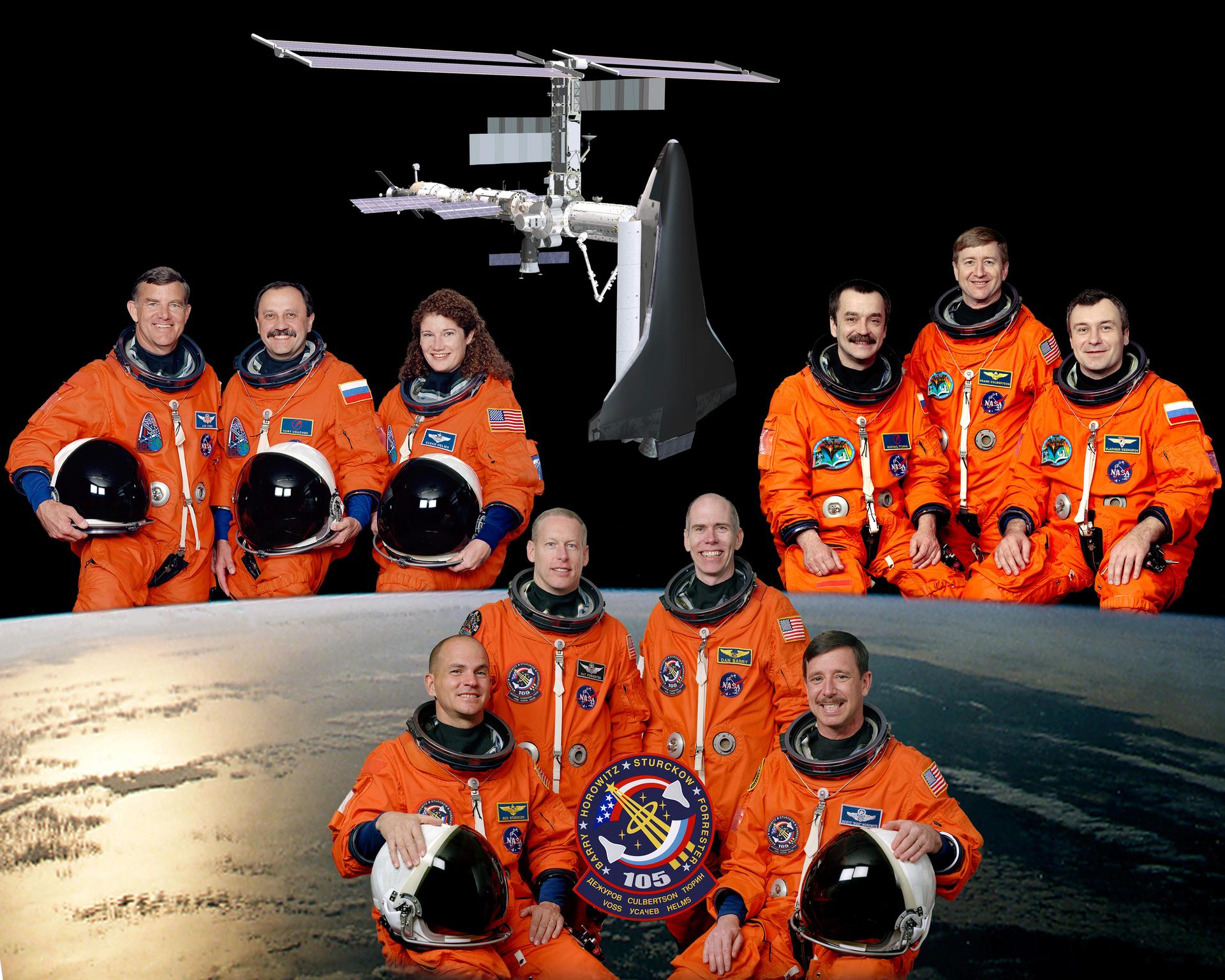
Mission Facts
Mission: International Space Station Assembly Flight 7A.1
Space Shuttle: Discovery
Launch Pad: 39A
Launched: August 10, 2001, 5:10:14 p.m. EDT
Landing Site: Kennedy Space Center, Florida
Landing: August 22, 2001, 2:23 p.m. EDT
Runway: 15
Rollout Distance: 10,036 feet
Rollout Time: 68 seconds
Revolution: 186
Mission Duration: 11 days, 19 hours, 38 minutes
Miles Traveled: 4.3 million
Crew
Scott J. Horowitz, Commander
Frederick W. (Rick) Sturckow, Pilot
Patrick G. Forrester, Mission Specialist
Daniel T. Barry, Mission Specialist
Mission Highlights
After linkup of shuttle Discovery to the International Space Station, hatches were opened and crews greeted one another. Part of the mission was to bring the next resident crew, Expedition 3, to the ISS and return Expedition 2 to Earth. The payload included the Early Ammonia Servicer (EAS), to be installed on the outside of the ISS, and the Multi-Purpose Logistics Module (MPLM) Leonardo.
On the fifth day of the mission, August 16, Discovery maintained control of the space station while Russian flight controllers completed loading and upgraded software commands to the Zvezda module. After completion of the upgrade, the Zvezda module again assumed control of the station’s attitude, or position in space.
During this time docked with the ISS, crews unloaded 7,000 pounds of supplies, equipment and science racks from the MPLM Leonardo, storing it on the space station. This was the second flight of the Leonardo to the ISS.
EVA No. 1: 6 hours, 16 minutes — Mission Specialists Forrester and Barry completed the first of two extravehicular activities (EVAs) to install the EAS on August 16, 2001. The EAS contains spare ammonia that can be used in the space station’s cooling systems if needed. During the EVA, Discovery Commander Horowitz operated the shuttle robot arm and Pilot Sturckow choreographed the spacewalk from the orbiter’s flight deck.
On August 17, in a special ceremony, the Expedition 2 crew handed over command of the ISS to Expedition 3. Briefings followed as well as stowing equipment, discarded items and belongings of Expedition 2 into the MPLM Leonardo.
EVA No. 2: 5 hours, 29 minutes — Barry and Forrester completed their second EVA on August 18, 2001, setting the stage for delivery of the S0 Integrated Truss Structure that is planned for 2002. They strung heater cables and installed hand rails on both sides of the U.S. Lab Destiny.
This EVA was the 26th devoted to assembly of the ISS, and the 68th spacewalk in shuttle program history. It also marked 431 hours, 39 minutes of total spacewalk time in shuttle history.
On August 20, the Discovery crew undocked from the ISS and performed a fly-around. They later deployed a small science satellite, Simplesat, via a spring ejection from a canister at the rear of the cargo bay.
STS-105
Shuttle News
Retired Space Shuttle Locations
Shuttle Atlantis – Kennedy Space Center Visitor Complex Shuttle Discovery – Steven F. Udvar-Hazy Center Shuttle Endeavour – California Science…
Read the Story